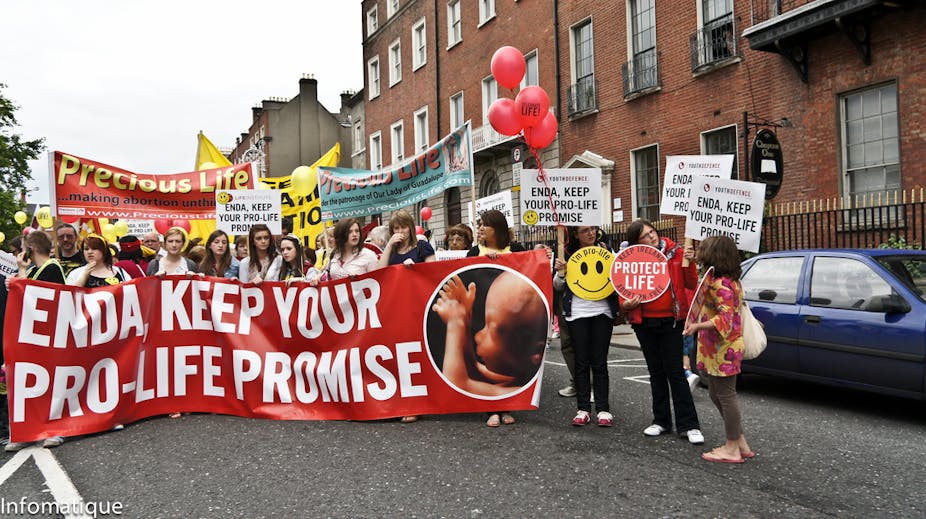There is a dog fight going on in Ireland. Four politicians from Fine Gael, the main party in government, have been dismissed from the party because they voted against a new bill that will permit abortion in limited circumstances. Under the proposed legislation, a woman will be able to have an abortion if there is a real and substantial threat that she will die if the pregnancy continues. However, what has caused politicians to vote against the bill is that the threat to the woman’s life includes the risk of her committing suicide.
There is a fear among opponents of the legislation that too many women will be allowed to have abortions by showing signs of being suicidal. However, any woman who seeks an abortion on these grounds will have to be assessed by three medical experts: an obstetrician/gynaecologist and two psychiatrists. The bill does not allow women to have an abortion if they have become pregnant from being raped or from abuse. Indeed, a woman who has an abortion as a result of being raped, and anyone who helps her, can be sent to prison for up to 14 years.
The row over abortion has been going on since 1983 when the electorate voted to put in a new clause in the Irish constitution that prohibited abortion. It was already illegal but many people wanted to ensure that legislators could not change the law without having a constitutional referendum. The 1983 amendment gave the unborn child the equal right to life as the mother. Over the past 30 years there have been judgements from the Supreme Court and European Court of Human Rights along with further referenda that have kept the battle going. Irish women are able to receive information about abortion and they are able to travel abroad to have an abortion, but there was never legal clarity about what constituted a real and substantial risk to the life of the mother, particularly in relation to suicide.
Last year, Savita Halapanavar died in a public hospital, having been refused an abortion because her medical team did not recognise how ill she was, but also because they could still detect a foetal heartbeat. The fatality caused an international backlash against Ireland’s abortion laws.
Public moving
The political spat has to be put within the context of changing public opinion. A poll published in The Irish Times in June this year indicated that 75% supported the proposed legislation, 81% said that abortion should be allowed in the cases of rape or abuse and 78% said that it should be allowed when the woman’s health, as opposed to her life, was at risk. However, only 52% said that abortion should be allowed when the woman is suicidal as a result of her pregnancy. Finally, 39% said that a woman should be allowed an abortion if she determined that it was in her best interest.
The Catholic Church has not been shy to become involved in the abortion row. Cardinal Sean Brady suggested that the proposed legislation was not just morally unacceptable but potentially evil. He was vague about whether Catholic politicians who voted in favour of the legislation could be excommunicated. When the Taoiseach (prime minister) Enda Kenny, who is a committed Catholic, was asked about this, he responded by saying that this was a constitutional and legal issue. When asked about the veiled threat of excommunication, he responded by saying that he had his own way of speaking to God.
Last stand
The abortion debate can be seen as one of the last stands the Catholic Church in Ireland is making against increasing liberalisation, particularly in relation to sexuality and women’s fertility. The days of the Catholic Church’s monopoly over Irish morality have long gone. From the 1970s, the church has railed against contraception, divorce, homosexuality and abortion, threatening that if they were allowed, Ireland would enter into a wasteland of immorality.
The reality is that Ireland is becoming more like its European partners. People may identify themselves as Catholics – 86% did in the 2011 Census – but this is a cultural identity. Being Catholic is seen as a part of their cultural heritage. Irish people may be born into, educated, married and buried within the church, but the church is no longer the only, let alone the primary guide, as to how they should lead a good life.

